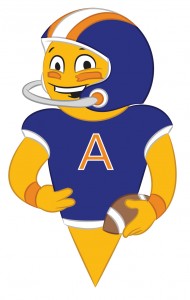NCAA Rules Changes: Perspective on Cam Newton Rule

The NCAA recently passed new regulations broadening their definition of what an agent is. This was made to close the loophole that allowed Cecil Newton, Cam Newton’s father, to solicit money (six figures in total) in exchange for his son playing football for the Mississippi State University. The NCAA determined Cam Newton knew nothing of the negotiations, and thus, he could not be penalized for the actions.
Did the NCAA Fix the Problem?
It’s not that this rule is a bad rule, but it demonstrates again that the NCAA solves situations and not problems. The NCAA has yet again chosen to stick their finger in the cracking NCAA Rule Book rather than create a new and better rule book. This doesn’t really live up to all of the hype surrounding the most recent meeting of presidents with the NCAA.
It only takes a brief Google historical search to see the pattern of the NCAA continuing to use shortsighted situation-specific legislation to “rule” over college sports.
Other Examples
In January, 9, 1957 the Associated Press released a story detailing problems with college recruiting where larger universities with bigger recruiting budgets were getting an unfair advantage in the recruiting process. Specifically, these schools were effectively paying athletes by offering scholarship beyond the cost of tuition. Hence, the resulting legislation was that scholarship amounts had to be tied directly to the predetermined cost of tuition and room and board.
In the 1970s and 1980s, the NCAA began to crack down on the extra benefits being given to recruits by boosters and fans. This was a rule change prompted by a rash of over-the-top benefits, none more famous than the Southern Methodist University football program’s long list of violations. Hence, a rule was changed, and again a situation was solved. Whether it’s the school, boosters, fans, or alumni, money has always been used to lure student athletes and their families. The changes by the NCAA have never worked to stop athletes from taking money.
I like the NCAA, and I think they do a lot more good than bad, but it is frustrating to see a problem that has been around for so long go unchanged. Let’s hope NCAA president Mark Emmert stays true to his word on reducing the size of the NCAA Rule Book; he can start with solving problems, not situations.
Do you have questions about NCAA rules? Ask them in the comments section below or ask us on Facebook, Twitter, or Google+!
Find opportunities for athletic scholarships and get connected to college coaches.
